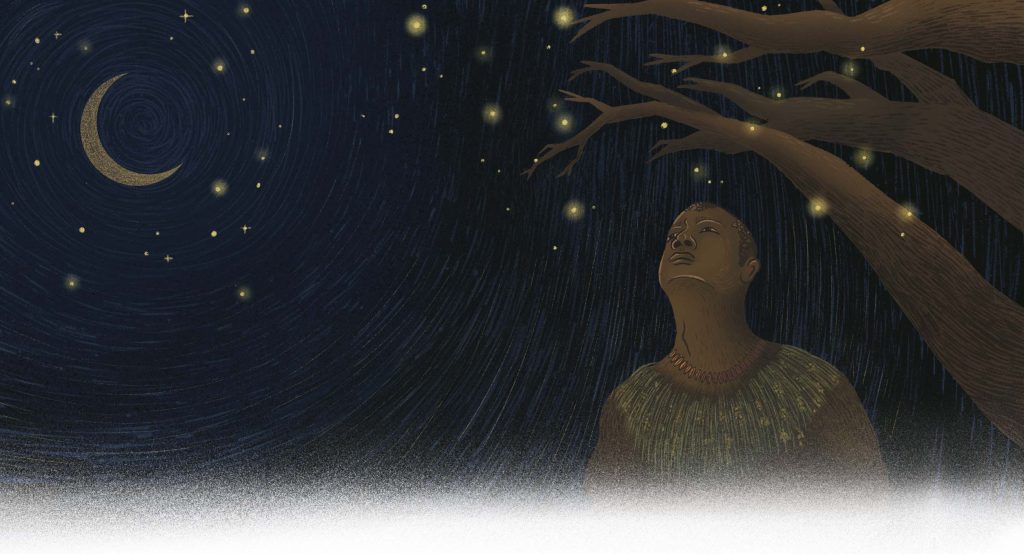Reading conservation papers these days is like exploring a new galaxy. We are not just discovering new worlds, we are being forced completely to re-imagine what life constitutes, and what self and identity actually mean.
And nowhere is this truer than with plants. Lively ontologies rumbunctiously jostle the fertile imaginaries of more-than-plant personhood. They playfully imbricate otherness into rhyzomatic structures, joining cosmologies within and through connection. Variegated subjectivities intersperse across and within species boundaries, defying traditional taxonomies. These are networks, if you will, that are not just animate, but plantimate.
These interests have a distinguished pedigree. Jagdish Chandra Bose, a doyen of early 20th century science, strapped vegetables to machines to measure their electrical impulses, demonstrating that carrots winced as they were sliced and convulsing cabbages gasped in boiling water. He even showed that they grew better when they listened to good music. Bose argued that plants felt both pleasure and pain.
Nearly a century later, it turns out he was onto something. Plants do emit ultrasonic sounds when cut1. They respond to the buzzing of bees. They might well ask:
‘How are we not like you?,
If you cut us, do we not scream2?,
If you tickle us, do we not giggle?,
If you introduce us to sport pitches,
do we not scream with joy when trodden on by famous cricketers?’

Thus has emerged the campaign to confer personhood upon plants. Now this creates a conundrum for a certain section of society. Currently at the top of Mount Morality are those who believe that no animal shall serve any human purpose whatsoever. Every animal is a person, has a right, and must not be used or abused in any way.
But, if adoration of animals comes, can passion for plants be far behind? After all, if plants have personhood too, then we must go the whole hog (or potato). We must democratise trophic webs and introduce participatory decision making into food chains down to the last blade of grass.
But before we embrace our new brethren, before we dare to welcome them to our domain, we need to take a long hard look at ourselves in the mirror. There is an ugly shadow of patriarchal and imperial domination looming over this beautiful garden of exploration. Our quest is for others be like ourselves, be recognisable to us, controlled by us. We are the original, they the facsimile. But who are we to say that plants should share our exalted status?
The personhood of plants? Indeed not! Why would any right thinking plant want to become a person? Do plants want to share our history of despoilation? Are we trying to make the trees responsible for Amazonian deforestation? Petunias for the conquest of the Americas? Should grasses and flowers take the blame for feudalism, patriarchy and the horrors of modernity?
We must reverse this thinking. It is time we dignified the adventurous transgressive multi-species project by recognising the planthood of persons. At one time, it was choice abuse to accuse a person of having the IQ of a plant. Now it should appear to be an honour. And let us be generous with this distinction. Let us seek to confer planthood upon every person. Perhaps we all, if we try hard, deserve to be recognised as plants. We can share their rootedness, their longevity, their fecundity, their seasonality. Their ability to stay in one place all the time and wave around in the wind.
In fact, we would go further. It is only be recognising the innate vegetal state of particularly visible sections of human society that we can characterise its true condition. The corporate elite is plainly a strangling fig. Old cabbages, fungal growth and mould dominate our political leadership. You are fortunate indeed if you can look at your President without instantly reaching for the salad dressing.
But, my friends, these are more-than-metaphors. These are actual physical conditions. Real chlorophyll surges through our politicians’ veins. It is only when we see our leaders as needing a gentle watering twice a day, and a very thorough dose of manure, that we can properly appreciate our place in the cosmos.
1Khait, O. et al. (2020) Plants emit informative airborne sounds under
stress bioRxiv 507590; doi: https://doi.org/10.1101/507590
2For incontrovertible evidence, see The Very Things (1984) The
bushes scream while my daddy prunes. Reflex Records.






